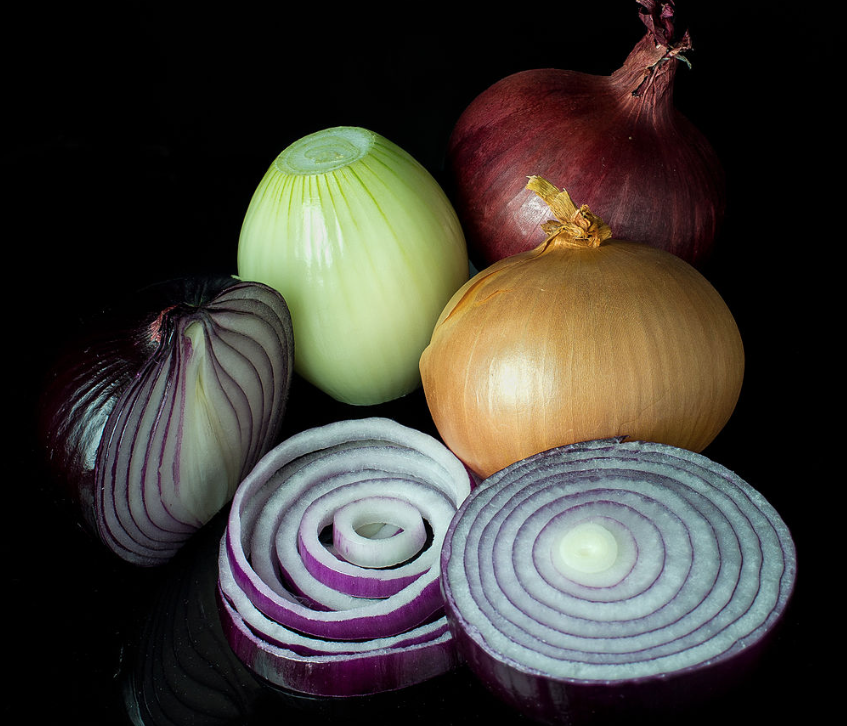Onions have been used medicinally for many thousands of years. Doctors would prescribe onions to relieve constipation, headaches and coughs. If people were stung by a bee, onion juice would be applied on the area for pain relief. If they had a snake bite, they would eat onions to lower the effect of poison.
Onions are an excellent source of polyphenols, which a phytochemical that plays an important role in maintaining health. The polyphenol content of onions is quite high compared to most vegetables.
Within the polyphenol category, are flavonoids such as quercetin. Quercetin is an antioxidant, which can neutralize free radicals and protect us from heart diseases and cancer. The University of Maryland says:
Quercetin and other flavonoids have been shown in these studies to inhibit the growth of cancer cells from breast, colon, prostate, ovarian, endometrial, and lung tumors. One study even suggests that quercetin is more effective than resveratrol in terms of inhibiting tumor growth. Another found that frequent intake of quercetin-rich foods was associated with lower lung cancer risk. The association was even stronger among subjects who smoked more than 20 cigarettes daily, and a third suggests that quercetin slows tumor growth in the laboratory (in leukemia cells).
Onions are a sulfur-containing food. Sulfur removes toxins from cells, and is important for the health of the mitchondria. Dr. Terry Wahls, a physician with multiple sclerosis (MS) who was at the point of being wheel-chair bound, was able to reverse her MS symptoms by focusing her diet on foods that nourished her mitochondria. You can watch her powerful TED talk below.
Onions are also a source of inulin, which is a prebiotic. Prebiotics are a special kind of dietary fiber that feeds the good bacteria in our gut. These bacteria in turn, help us to absorb the nutrients in our food and play a significant role in our immune function. Additionally, inulin reduces our risk of diabetes and helps with weight loss. From Dr. Mercola:
Women with type 2 diabetes who took 10 grams of high-performance inulin a day also had decreases in fasting blood sugar (by 8.5 percent) while A1c levels (a measure of long-term blood sugar control) dropped by 10.5 percent.
and
A number of studies have shown the potential for inulin to help with weight loss. Among overweight and obese adults, those who took 21 grams of inulin a day had decreases in their hunger hormone and increase in satiety hormones.
Further, they lost more than two pounds while the control group gained one pound. Among people with prediabetes, meanwhile, those taking inulin for 18 weeks lost 7.6 percent of their body weight compared to the control group’s 4.9 percent.
Onions are also an excellent source of vitamin C, magnesium, calcium, phosphorus and potassium.
Although onions are more active in their raw state, they may be irritating in the stomach. Some people find them difficult to digest. If you cannot eat raw onions, you can follow simple cooking methods that make them more palatable and tolerable in the stomach. Onions baked in their skins, in a similar way to baked potatoes, are delicious. Baking keeps all the goodness inside, but the resulting flavor is milder and more aromatic than that of raw onions.

